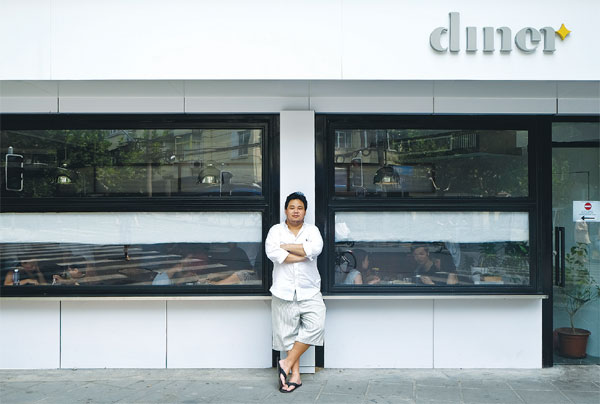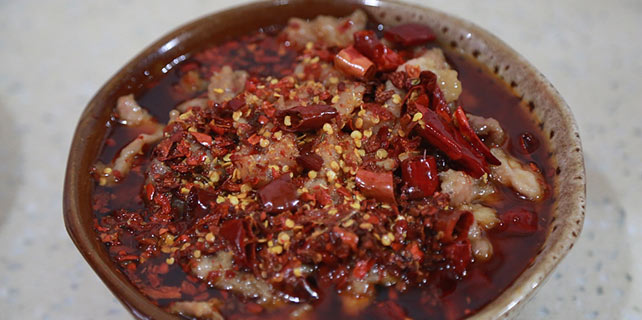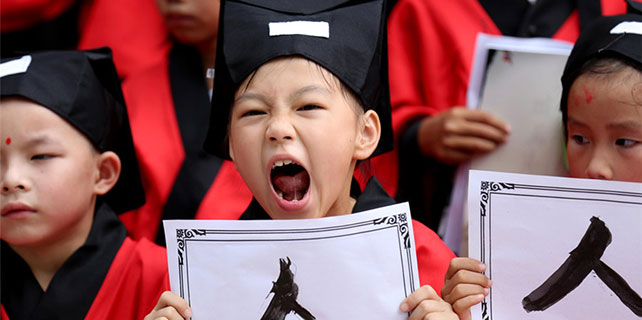A hark back to his roots
 |
|
A casual aff air: Austin Hu's new eateries mark a departure from fi ne-dining and refl ect his love for classic American fare like deli-style sandwiches and burgers. ALYWIN CHEW / CHINA DAILY |
Celebrated American Chinese chef Austin Hu explains the concept behind his new dining establishments and why his adopted city of Shanghai is the closest thing he has to home today
Austin Hu rolls up at his new diner in Shanghai in a shiny black scooter, dressed in a baggy white shirt with its top button undone, a pair of oversized three-quarter pants and black flip flops.
These days, casual is the name of the game for Hu. And it's not just in terms of personal style.
The American Chinese chef, who has spent the past eight years in Shanghai, presently runs two casual-dining establishments in the city. Located on Huaihai Middle Road, Madison Kitchen is an American-style deli selling sandwiches, tarts and cookies.
Over at Wuyuan Road, Diner is an all-day breakfast joint serving burgers, pancakes and French toast. He also designed the food menu at the cocktail bar The Union Trading Company.
Discerning customers, however, will know that there is an impressive finesse behind his seemingly no-frills offerings.
The spam served at Diner doesn't come from a can - that would be considered sacrilegious by Hu's exacting standards. Rather, edge cuts from handmade ham and fresh ground pork is grinded through two dies of different sizes before being paddled with spices. What follows is a slow cook in a water bath at low temperature.
This attention to quality and detail is what has defined Hu's legacy in the city. The 38-year-old rose to fame in the Shanghai restaurant scene with the now-defunct Madison, a fine-dining establishment that had a unique focus on local produce.
The restaurant used to serve food such as wagyu beef from Dalian of Northeast China's Liaoning province, spring water from Heilong-jiang province, chanterelle from Southwest China's Yunnan and caviar from sturgeon in Qiandao Lake in Hangzhou, Zhejiang province, in the east. The restaurant bagged multiple awards and used to be lauded as one of the best in Shanghai.
Born in Wisconsin, Hu spent his childhood years in multiple cities because his father, who worked for US multinational company SC Johnson, constantly travelled as part of the job. He eventually returned to the US to pursue a degree in Economics and East Asian Studies at Lafayette College in Pennsylvania.
Cooking, he admitted, was never an ambition until he took up his first job when he was 21.
"I worked at an e-commerce electrical lighting component company after graduating from college. I was so miserable there I left after four months," he laughed.
"I spent a month thinking what I wanted to do with my life and realized that my happiest moments were those spent cooking with my friends, watching Food Network and going to farmers' markets to seek out unique spices."
Hu went on to sign up for a part-time course at the French Culinary Institute in New York. At the same time, he found himself an apprenticeship position at a restaurant called Amuse. This marked the beginning of his fixation with quality local ingredients.
"So I came across these really small strawberries from a local farmer that cost a whopping $15 a pound. You could get strawberries from supermarkets for only $4 a pound!" he exclaimed.
"They turned out to be the best strawberries I have ever eaten. That was the moment when I learned that chefs don't necessarily have to create over-the-top food. You just need the best ingredients and half your job is done."
Hu worked in the kitchens of three other restaurants, including the acclaimed Gramercy Tavern in New York, before deciding to start his own fine dining establishment.
But he cast his eyes on the China market after realizing that the US restaurant industry was slowing down because of the ongoing financial crisis.
He was also eager to prove a point.
"Back then, China was getting a lot of flak for fake ingredients and lazy workers. I wanted to change that perception. Come on, you have such things happening everywhere in the world. You're saying out of the 1.3 billion people in China there are no good cooks or people who want to learn?" he said.
Madison opened on Donghu Road in Shanghai in 2009 but it was forced to relocate a few years later when the building's lease was not renewed. Desperate to find another location after a four-month search, he settled with a considerably larger space at Fenyang Road.
It was a gamble, and one that produced mixed results. While the crowds did not stop pouring in, the pressure to meet the exorbitant rent weighed down on Hu. Because of this, he realized that many of the decisions he made were based on financial reasons instead of factors like food and customers. Problems with the landlord exacerbated matters.
As much as it pained him, Hu pulled the plug on New Year's Day in 2015.
He made his comeback with Madison Kitchen in mid-2016. Diner opened in May this year. Apart from the fact that smaller restaurants are easier to manage, Hu explained that these two outposts also mark a return to his roots.
"I wanted to introduce eateries that could fill a void in Shanghai in terms of quality sandwiches and burgers which are part of my food lexicon as an American," he said.
"I also wanted these places to be approachable and fun. I wanted to play lots of music from my younger years in the 80s and 90s."
He also has plans to revive his magnum opus. "Madison will definitely be back someday, and I miss prepping and cooking in the kitchen. That's what I trained for," he said.
"On a good day in the kitchen, you feel like you're in harmony with everything and everyone is on point - it is the ultimate ballet. This is a feeling you don't have in many industries."
The one thing he isn't keen on revisiting, however, is his days as a drifter.
"I've moved around so much when I was growing up so I just wanted to be near my parents who have settled here," he said.
"Shanghai is the closest thing I have to home now."
alywin@chinadaily.com.cn









